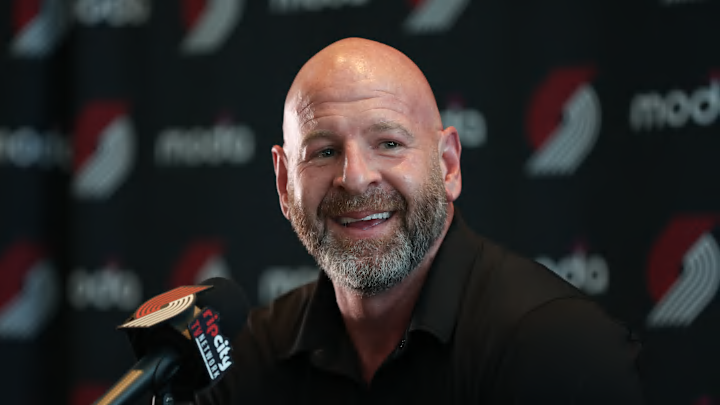ESPN's Zach Kram ranked the biggest roster mistakes each team has made since 2020. The Milwaukee Bucks landed in the top tier of "Franchise-altering terrible trades." There's a common theme amongst these trades: all-in moves that backfired.
The Bucks ranked third, only behind the Dallas Mavericks, who shockingly traded away superstar Luka Doncic, and the Phoenix Suns, who sacrificed their future for Kevin Durant and Bradley Beal. Meanwhile, Milwaukee's worst mistake was acquiring Damian Lillard from the Portland Trail Blazers.
Here were the details of that blockbuster three-team trade:
Portland received: Jrue Holiday, Deandre Ayton, Toumani Camara, Milwaukee's 2029 unprotected first-round draft pick, unprotected Milwaukee swap rights in 2028 and 2030
Milwaukee received: Damian Lillard
Phoenix received: Jusuf Nurkic, Grayson Allen, Nassir Little and Keon Johnson
How Blazers' Damian Lillard trade boosted their rebuild
Lillard's preferred landing spot was the Miami Heat. Still, Milwaukee's offer was more appealing to Blazers general manager Joe Cronin -- a decision that continues to look better by the day, judging by the fact that this is deemed the Bucks' worst move in recent history.
This trade was also a balancing act by Cronin. He wanted to maximize Portland's return, yet still give Lillard a legitimate shot at his first ring, which was a primary factor behind the trade request. Milwaukee was the top seed in the Eastern Conference the previous year and significantly upgraded its offense by pairing Giannis Antetokounmpo with another superstar in Lillard. At least, that was the case on paper.
Kram noted that this trade "seemed smart at the time" for the Bucks, but it didn't pan out as expected for two main reasons: cohesion and health.
"The two future Hall of Famers ran only 20.2 picks per 100 possessions, per GeniusIQ, which ranked a middling 46th out of 83 pick-and-roll combinations over the past two seasons (minimum 500 total picks)," Kram wrote.
Lillard was coming over from Portland, where he was the clear-cut No. 1 option, and two seasons in Milwaukee weren't enough time for the superstars to figure out how to best complement one another despite their ideal theoretical fit. Injuries certainly played a role in that, but Lillard averaged 66 games while Giannis averaged 70 during those two seasons.
It wasn't necessarily about the injuries, but more so about their timing. Giannis missed the 2023-24 playoffs with a strained left calf, while Lillard missed portions of both postseasons, resulting in consecutive first-round exits.
Lillard's Achilles tear during the 2024-25 postseason ultimately led to Milwaukee moving on from this failed experiment sooner than expected. To clear cap space to sign Myles Turner and remain competitive with Giannis, the Bucks waived and stretched Lillard's remaining contract, owing $113 million over the next five years. Surprisingly, Portland got Lillard back on a three-year, $42 million contract.
Although we likely have to temper expectations regarding Lillard's return following his brutal injury, this all played out perfectly for the Blazers' long-term outlook.
Milwaukee's future draft picks increase in value now that they have dead money limiting their flexibility for roster upgrades. That's before even accounting for the possibility that Giannis ultimately decides to play elsewhere. Through the initial Lillard trade and subsequent moves involving those assets, Portland also landed building blocks Toumani Camara and Deni Avdija to help jumpstart its rebuild. And now, in a full-circle moment, Lillard returns to Portland on a team-friendly deal.
Cronin's bet against Milwaukee has already paid off in a significant way, and those draft picks have yet to be conveyed.
